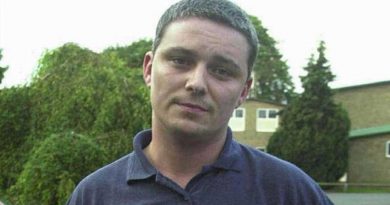Covid 19 coronavirus: Traveller’s worries over mingling at isolation hotel
A man who passed through a managed isolation hotel last month was surprised to find just-arrived groups were able to mix with soon-to-depart travellers.
The Dubai-based businessman, who asked not to be named, contacted the Herald in light of a fresh border breach that’s prompted an urgent investigation into New Zealand’s managed isolation and quarantine (MIQ) system.
After arriving in New Zealand on December 3, the man and his fellow passengers were sent to the Ibis Rotorua, where they had free use of the car park for walking and recreation.
While the passengers were told it was important to keep their “flight bubble” together, no allocated times were given to the group for venturing outside.
Rather, he said, NZ Defence Force personnel would issue warnings to anyone they saw walking or running close to other people.
Over the first three days, the group was mixing with others who had received their day 12 tests, and scheduled to leave.
“I understand four passengers from our flight failed the day three test and were shipped back to the Auckland Jet Park Hotel [quarantine facility].”
While passengers in the hotel were ordered to lock down each time a new flight group arrived, he said there was no requirement to stay in his room while he waited for the results of his day 12 test.
“On day 12 and 13, whilst walking around the car park, I noticed a lot of new people,” he said.
“There was a chance to have been infected, but I made sure I kept my distance as much as possible.”
The man said his experience pointed to several clear improvements that could be made, including allocated times for flight bubbles to exercise, and rules restricting guests to their rooms between their final test and departure.
He also saw a need for testing technology that yielded faster results.
Managed Isolation and Quarantine and Ibis Rotorua have been approached for comment about the concerns.
Covid-19 modeller Professor Shaun Hendy said any situation where departing travellers could come into contact with new arrivals should be avoided as much as possible.
“That’s really quite risky. This isn’t what we’d consider close contact, but it certainly wouldn’t be best practice.”
It comes as the Government today launched a fresh inquiry into MIQ arrangements, after it was found the latest community case – a 56-year-old Northland woman – was likely infected by a fellow returnee before leaving Auckland’s Pullman Hotel.
Health Minister Chris Hipkins said, in that case, the woman had adhered to infection control guidelines in her room and in the exercise space.
Monthly audits are made on prevention measures, he said, however an urgent investigation was underway to look again in case further changes can be made.
“That will also include looking at whether returnee movement should be restricted towards the end of their stay in managed isolation after they have had their final test and before they have been released,” Hipkins said.
Work was also underway on new filtration devices in the air conditioning systems in managed isolation facilities.
Earlier this month, the Herald reported bubble breaches in managed isolation and quarantine had been occurring on average at a rate of once every 36 hours.
While the breaches were considered minor, every one of them was also an avoidable risk of Covid-19 spread.
The most high-profile breaches have included visiting cricket teams from the West Indies and Pakistan, who were caught hanging out in common areas and passing things to each other.
But no penalties have been handed down, in contrast with the more serious breach of escaping from MIQ.
That has happened 10 times and involved 14 people, 10 of whom have been charged with failing to comply with an order made under the Covid-19 Public Health Response Act.
The last time was in October, when a woman escaped from the Grand Millennium Hotel in Auckland through a fire exit between 1am and 3am.
She was caught trying again the following night.
This month, a spokesman for Managed Isolation and Quarantine said they did not keep records of what happened to people who breached MIQ bubbles.
“The first response is isolation, testing, education and warning, but there can be instances where people have had their time in isolation reset, if they have been potentially exposed by the breach.
“In serious instances, of repeat cases of bubble breaching, the New Zealand Police may become involved, and issue a warning.”
Otago University epidemiologist Professor Michael Baker believed every single case should be investigated – and disclosed to the public.
“I think it’s very important to make this a very open discourse, so we can have continuous quality improvement.”
More than 102,000 people have passed through MIQ facilities since March 26.
Source: Read Full Article

/cloudfront-ap-southeast-2.images.arcpublishing.com/nzme/ZVY2EL57AOITMY6I3RIFYUXR5I.jpg)


